Loren Cordain is a professor at Colorado State University. He’s an expert on paleolithic lifestyles. His most recent book is the Paleo Answer. We did this interview in November, 2011. It starts with Loren giving the evolutionary reason for why grains can be irritating to the human gut. — Shelley Schlender – meandmydiabetes.com
Listen to Loren Cordain (20 Minutes)
Grains and Leaky Gut
Why do grains irritate the human gut?
LOREN CORDAIN
Grains are the seeds of a plant. They’re its reproductive material, and plants don’t make their reproductive material to give away for free to other animals. If they did they’d become extinct, and so the evolutionary strategy that many plants, particularly cereal grains have taken to prevent predation is to evolve toxic compounds so that the predator of the seeds can’t eat them, so that they can put their seeds in the soil where they’re meant to be to grow a new plant and not in the gut of an animal to feed it.
We hear that whole grains are especially valuable because of their many vitamins and special nutrients. Why don’t you like the parts of the grain that make it a “whole grain?”
LOREN CORDAIN
If we look at the outside part of the seed, that’s the part that comes in contact with the environment and that’s the one that has the concentrated sources of anti-nutrients, so all these nasty things that we’re finding in grains that cause problems are concentrated in the outside portion of it. So that’s where the fiber is, is in the bran portion, and that’s where many of the anti-nutrients are.
I had a friend whose knees ached when she ate whole grains, but they felt fine when she ate white French bread. Now, I’m not advocated white bread as a health treat, but why might it cause less problem for her achey knees than a whole grain bread?
LOREN CORDAIN
Whole grains are concentrated sources of anti-nutrients, more so than white bread. White bread certainly isn’t good because of high glycemic load. It also contains gliadin which is one of the elements that open up the gut, but lectins do too, and lectins are more concentrated in the outside layer of wheat berries. People think grains are a good source of fiber and actually they’re not. Fruits and vegetables contain orders of magnitude, at least vegetables do, contain an order of magnitude greater amount of fiber per calorie than grains. There’s no human requirement for grains. That’s the problem with the USDA recommendations. They think we’re hardwired as a species to eat grains. You can get by just fine and meet every single nutrient requirement that humans have without eating grains. And grains are absolutely poor sources of vitamins and minerals compared to fruits and vegetables and meat and fish. When you state the obvious, anyone can do that. Get a computerized dietary analysis program and put in the eight whole grains and then put in the 20 most commonly consumed fruits and the 20 most commonly consumed vegetables and look at the nutrient density. The nutrient density is much greater in fruits and vegetables than it is in grains. So why are we putting grains at the base of our food pyramid and telling people that they have to eat them? There’s absolutely no nutrient in grains that we can’t get elsewhere.
Many nutritionists argue that we need to eat grains for the fiber, in order to avoid constipation. Do you agree?
LOREN CORDAIN
You do need bulk and what we call prebiotics, which is fiber, but there are basically 2 types of fiber, soluble and non-soluble. And grains, except for oats, contain mainly non-soluble fiber. Fruits and vegetables contain soluble fiber which tends to be therapeutic because it slightly lowers cholesterol and benefits some other blood parameters. But even more, it provides soluble fiber which is an environment for healthy bacteria to live in our gut, and so what we’re finding now is that probiotics along with prebiotics, help us to have a healthy flora of bacteria in our gut, and when we have a healthy flora of bacteria in our gut, it tends to prevent leaky gut, and it tends to prevent chronic low level inflammation that occurs when our gut is colonized with gram negative bacteria more than gram positive bacteria. In contrast, if you eat an average low reside western diet, high glycemic load diet, it tends to promote flora that is not therapeutic.
Paleo Diets and Diabetes
Once somebody has full fledged diabetes or they’re on the way to that, while they could have eaten a paleolithic diet before that might have helped prevent their diabetes, they may not be able to have as many carbohydrates as a paleo-diet tends to have. Are you comfortable when people tend to modify a paleo diet so they eat more fats and they eat fewer fruits and starchy vegetables?
LOREN CORDAIN
There are two types of diabetes. The most common type in the US is Type 2 diabetes, and that’s the type that is essentially a lifestyle issue. People with obesity, people that are insulin resistant, develop Type 2 diabetes, and that can be cured. It’s not an incurable disease, and so by losing weight and changing diet and reducing carbohydrate in their diet, these people can end up becoming non diabetic, and coming into complete remission with their disease. The other type of diabetes is Type 1 diabetes which is an autoimmune disease in which the immune system attacks the beta cells that produce insulin in the pancreas and destroys those beta cells. The thinking has always been there’s no such thing as remission from Type 1 diabetes because once the Beta Cells in the pancreas are destroyed, then you have to inject insulin for the rest of your life. What we have found now, surprisingly in the last three or four years, we have had two or three anecdotal cases of people with physician diagnosed Type 1 diabetes, who were insulin brittle, so they were injecting themselves with insulin, we have at least three cases that I’m aware of where they have actually come into complete remission, and myself, I was the biggest skeptic of all. I said you can’t come out of the disease, and but we heard these people did, and so they stopped injecting insulin, and there are certain blood parameters you can measure to determine whether or not someone still has the disease, and so I’m working on this with a colleague here in our department, and another immunologist outside the U-S, and we think what’s going on is that the immune system all but destroys most of the beta cells in the pancreas, but there are what are called stem cells, and a few stem cells are left that can become beta cells, and if you can stop the immune assault on the beta cells, on the body’s own tissues, if you can completely stop it, then those stem cells might be able to regenerate beta cells, sufficiently to restore pancreatic function.
Now, beta cells only regenerate at a rate of about 1 percent per year, so it’s not very fast. Is it possible that sometimes there are beta cells that are almost dead, but they’re not all dead, and when the body stops attacking them, they start functioning again.
LOREN CORDAIN
What we’re thinking in both anecdotal cases we’re aware of, is the people that came into function were younger people, they were two young women that had recently been diagnosed, and so our thinking is that they perhaps had 10 or 20 percent of their beta cell function remaining, and then with the cessation of the immune system assault, on the beta cells, that stem cells started to regrow, and the remaining cells in the stem cell regrowth perhaps were the explanation. We didn’t know, because most researchers had never heard about this before.
Now one of the women that you had mentioned to me before who was a type 1 diabetic who stopped taking medications, on her website she says she is now taking medications.
LOREN CORDAIN
I don’t know if she gave up on the diet or what. I haven’t spoken to her directly. I do know of a younger girl in her early teens, and I have been in correspondence with her mother, and this young teenage girl is and has been in remission.
There is also a woman who is advertising on the web right now about her twin boys, who she put on a what I believe she describes as a plant-based diet, where they were both diagnosed as Type 1 diabetics, and now they don’t take any medications.
LOREN CORDAIN
That doesn’t make a lot of sense to me because the only way you can eat a plant-based diet is by eating grains and legumes, and those are two factors that can irritate the gut. Hundreds of scientific papers show that legumes and grains increase intestinal permeability, and they do it through the mechanisms we talked about earlier, through lectins and saponins, and what are called thaumatin-like proteins, so I would say that vegetarian or vegan diets would be one of the worst ways a person with autoimmune disease could go. I recommend not doing that.
Plus those have a fairly high carbohydrate content, sugar turning into content, which would be more likely to stress the pancreas and the insulin system.
Yes, a higher carbohydrate diet before insulin was synthesized and before people could inject themselves with insulin one of the few ways that people could counteract the disease, because it wasn’t until the early sixties that the distinction was made between Type 1 and Type II diabetes, was to reduce the carbohydrate in their diet, prior to the day and age of the synthesis of insulin and injecting it.
Wish List for Data to Determine the Ideal Diet
You have mentioned several blood-carried protein markers that indicate when someone is not digesting foods completely, making the proteins in those foods “leak” into the bloodstream, where they can trigger inflammation. Those could be a powerful way to figure out whether someone is eating foods that lead their own gut to be leaky. That could be helpful for people with arthritis, MS, autism . . . a huge list of ailments. It would be fun, wouldn’t it, to get all these markers together and have experts look at them and comment on the same thing. It wouldn’t mean we’d answer all the questions. There would always be more questions, but it would be a neat thing to look at.
LOREN CORDAIN
There’s a biological template that allows scientists to look into the future, and it’s called the evolutionary template, and if you don’t use it, it’s like playing soccer, running uphill on a soccer field, against a team that’s running downhill. And any nutritionist or biologist or physician that doesn’t use the evolutionary template to help guide them to the correct decision is inevitably going to to end up with the wrong answer. And that’s part of the problem with the governmental recommendations right now by the USDA is that we’re not putting the evolutionary template over the problem of diet and health.
I’m kind of in an odd role here in what I do research wise. I’ve pushed pieces around on a chess board. We’re kind of a think tank here and me and my graduate students I work with around the world, we’re not bench scientists per se. We don’t do the cooking, we invent the recipes. Or rather, we suggest the recipes, and some scientists are interested in our ideas and testing them, but many scientists many bench scientists are very close to a very narrow idea and that’s what they pursue. They don’t look at the big picture, and I have the luxury of looking at the big picture.
Removing Wheat and Dairy May Not Be Enough – What about Beans and Potatoes?
LOREN CORDAIN
If the numbers are correct, with 1% or 2% of the U-S population testing positive for Celiac Disease now, there’s no way in God’s green earth that we should be recommending whole grains to the entire population. It absolutely makes no sense.
I’ve got an article from the New York Times, Loren Cordain, that came out on November 25th, 2007, titled, Should we all go gluten free?” it talks about a recent convention where people flocked to a breakfast where they could eat pancakes that don’t have gluten in them. They were offered many gluten free products which I suspect, you would say, still have potential to cause a leaky gut. It’s not as simple as having a gluten free bread.
LOREN CORDAIN
Exactly. You can make gluten free products,. You can have gluten free breads that are made out of rice and potato flour, and god knows what else, and they can have even a texture that is similar to bread, but you’re still getting a gigantic glycemic load, you’re still getting a variety of the antinutrients that are potentially not very healthful.
I suspect you’ve seen some markers that would among other things, tell whether people are eating what they think they’re eating . . . or not eating. There are some markets you’ve looked at that could indicate whether someone’s getting wheat or gluten in their diet without realizing it. If there was an inexpensive way to check this, I can imagine that kids with autism whose parents are sure they’re doing the “Defeat autism now” diet, where they’ve diligently pulled all the glutens out of their child’s diet, they could actually take a blood sample and see whether they’ve succeeded. After all, it’s so easy to inadvertently get gluten into a person’s diet. The Celiac Disease Center at the University of Chicago has pointed out that it takes less than a tenth of a teaspoon full of gluten once every two months, to keep to keep the inflammatory attack from Celiac Disease going on the gut. That’s not very much. That’s as much gluten as there might be in seasoned salt if it’s used every day. It’s really a startlingly small amount.
LOREN CORDAIN
You have to be very very careful if you have gluten sensitivity or celiac disease. No amount is too little.
And I believe from the research that you’ve done, you’re aware of some other markers that would be worth going after in a blood test. If there was a comprehensive panel that had those kind of things on it, it could answer a lot of questions for people with chronic conditions.
Leaky Gut and Autism — Gluten, Dairy and Beans and Potatoes?
LOREN CORDAIN
I think that looking at gluten and gliadin, Dr. Alessio Fasano, for instance, of the Center for Celiac Research in Maryland, and people that are looking at leaky gut, they’re missing some of the antinutrients that go beyond gluten. For instance, with autism, we know there’s leaky gut. And it presents frequently, but we’re looking at this uni-dimensionally. For instance, in autism, they’re looking at wheat and dairy, and they remove wheat and dairy, but I can tell you right now, potatoes contain substances that cause a leaky gut, as do legumes, just to the extent that gliadin does. So if you’ve got an autistic kid, and you get them off of wheat and dairy, well good. There’s one meta-analysis that has looked at all six studies that either removed wheat or removed dairy, and it shows a therapeutic effect for autistic children, but if a leaky gut is indeed involved, and it is autoimmune related, then you’re only halfway there, and you have to get the legumes and you have to get the potatoes out of the diet. These saponin containing foods, we know, cause leaky gut. In healthy normal humans, there are two Glycoalkaloids in potatoes. One’s alpha-chaconine and the other’s alpha-solanine. In healthy normals, after you eat mashed potatoes, within half an hour, those two Glycoalkaloids are found in the bloodstream of healthy normals. What does that tell us? It tells us they’re breeching the gut barrier. Those are ubiquitous foods. Chili Beans, potatoes, french fries, mashed potatoes. People eat those things every day. So if we’re looking at a leaky gut, then you need to look at these other substances.
And also you would suggest that even though there are no saponins and no lectins in sugar, that can can lead to leaky gut, too. In a very different pathway, but that can do it too.
LOREN CORDAIN
High glycemic load carbohydrates we know cause increased intestinal permeability, and one of the mechanisms may be the change in gut flora we’re seeing when people eat those kinds of foods, when people eat a lot of sugar and refined carbohydrates. It could potenially alter the gut flora in a manner that can increase intestinal permeability.
Loren Cordain, you have a new book coming out.
LOREN CORDAIN
I do indeed, and it’s published by John Wiley and Sons and the title of the New Book is The Paleo Answer, and I’ve written about everything that I haven’t written about in my other two books, and it’s got all of the latest information right up to 2011. So we’ve got the best science in there showing you that saturated fats are okay to eat, and why vegetarian and vegan diets are not a good idea, and why taking antioxidant vitamins might shorten your life.
I guess I’d better read it.
LOREN CORDAIN
Have you been following the antioxidant story? All the meta-analyses are now showing that if you take Vitamin C, Betacarotene, Vitamin E, if you take all of those, it increases overall mortality, so you’re much more likely to die if you take them than if you don’t
Some of the exercise studies about supplements have been interesting, and it makes taking supplements seem similar to taking antibiotics. That the body is best off if it gets its chance to fight things on its own first, whether it’s oxidation, or whether it’s a bacteria or a microbe. If the body sends forward its own troops first and understands how to do that, it’s better prepped to deal with the challenge, and whether it’s Vitamin C or an Antibiotic, if it’s added too early, then the body’s own response never gets smart enough to deal with the challenge on its own. So, I believe the study of supplements indicated that that athletes who are always taking antioxidants didn’t do as well as athletes who kick them in now and then.
LOREN CORDAIN
They don’t recover as well. And men who take Vitamin E have a 20% greater risk of dying from prostate cancer than men that don’t. The people at the cutting edge of nutrition are now advocating real foods and not vitamins and minerals and supplements or these designer foods like yogurt with this that and the other vitamin in it.
One time an editor told me he was tired of the stories from me, because it was always the same thing. It was about a whole food and basic things. Why couldn’t I talk about a new pill that was going to help people out?
LOREN CORDAIN
There are two magic pills. One is called Vitamin D and the other is called Fish Oil. If you go in the sunshine, you don’t have to take Vitamin D, and if you eat fatty fish a couple of times a week you don’t have to take fish oil. So we’re going right back to the way our bodies were designed. Humans are good field animals and we’re designed to be outside, outdoors, exercising, in the sunshine, eating real nutritious foods.


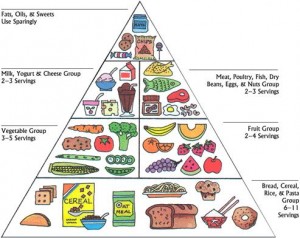
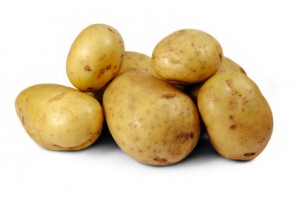
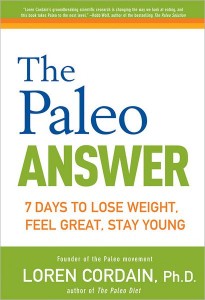


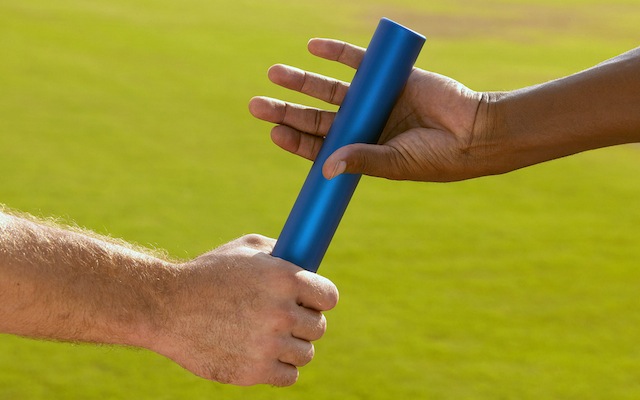

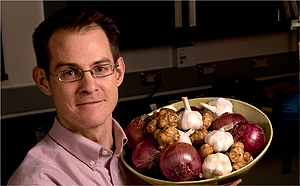
33 comments for “Loren Cordain – Leaky Gut, Whole Grains, Potatoes & Autism”